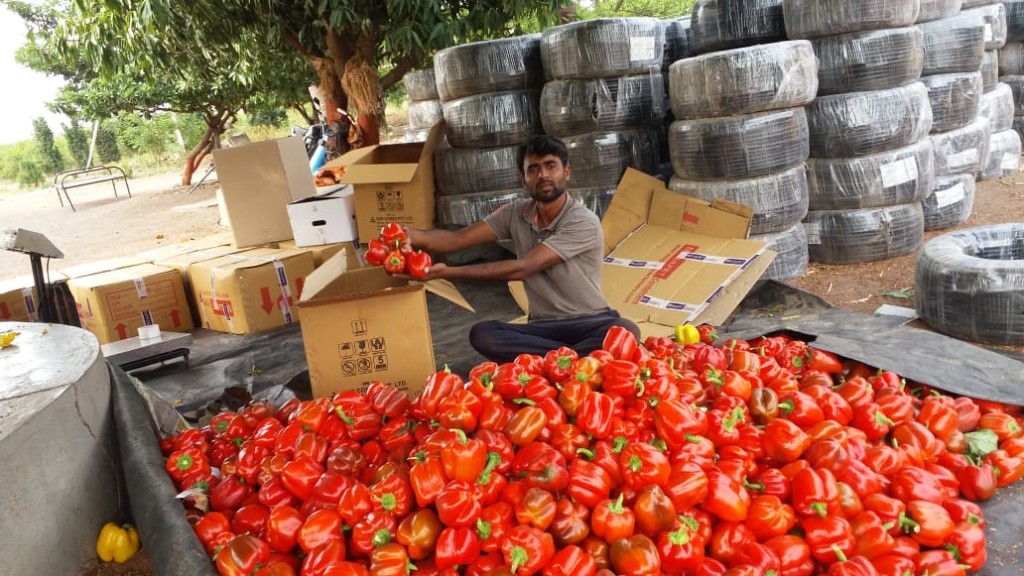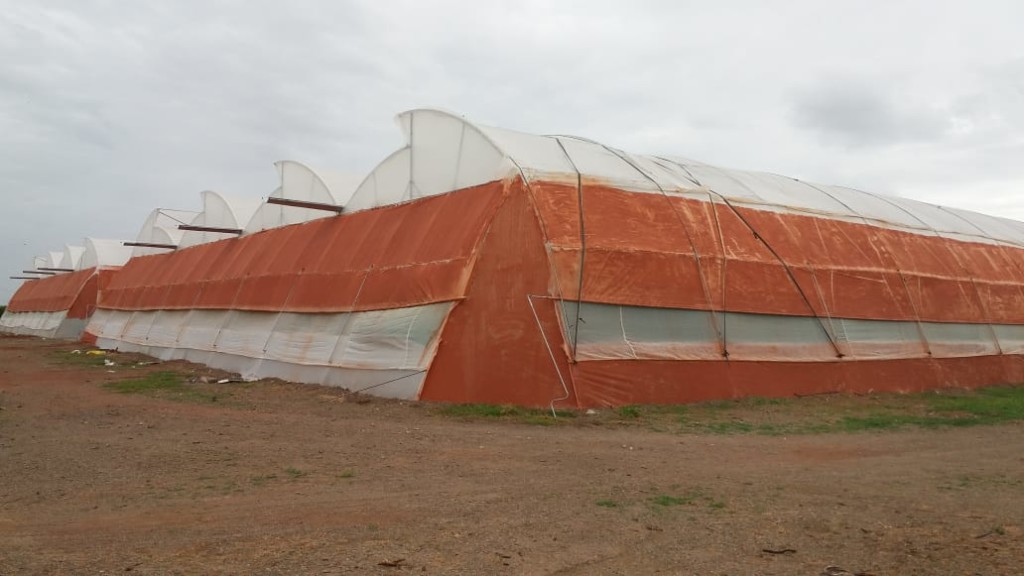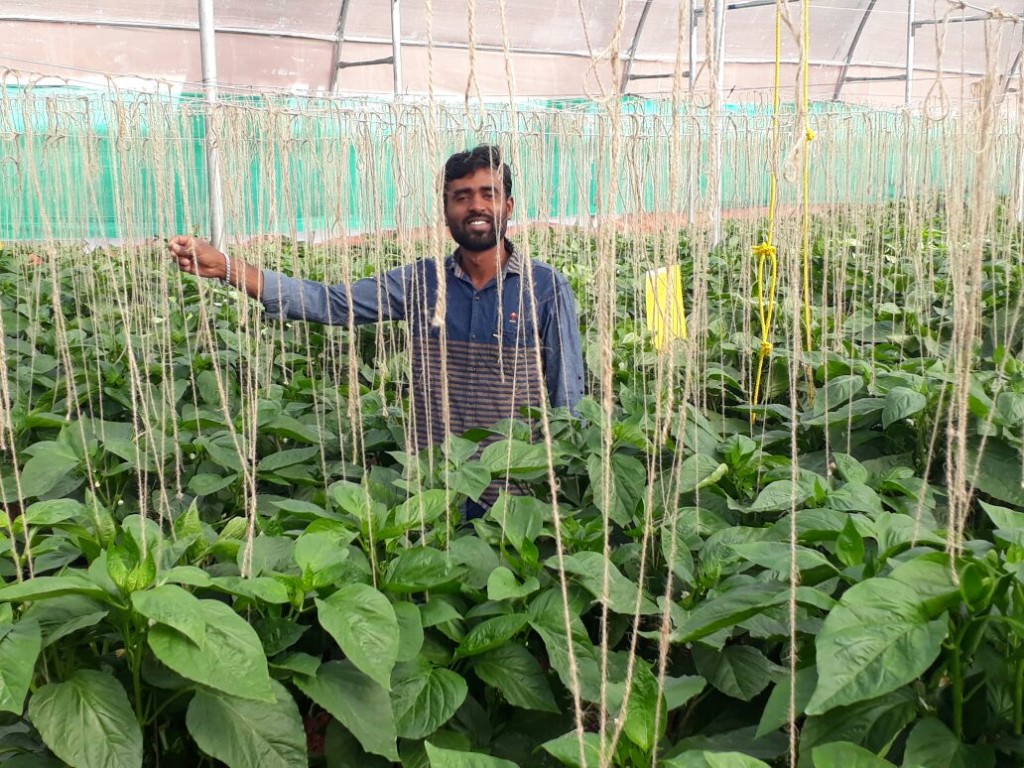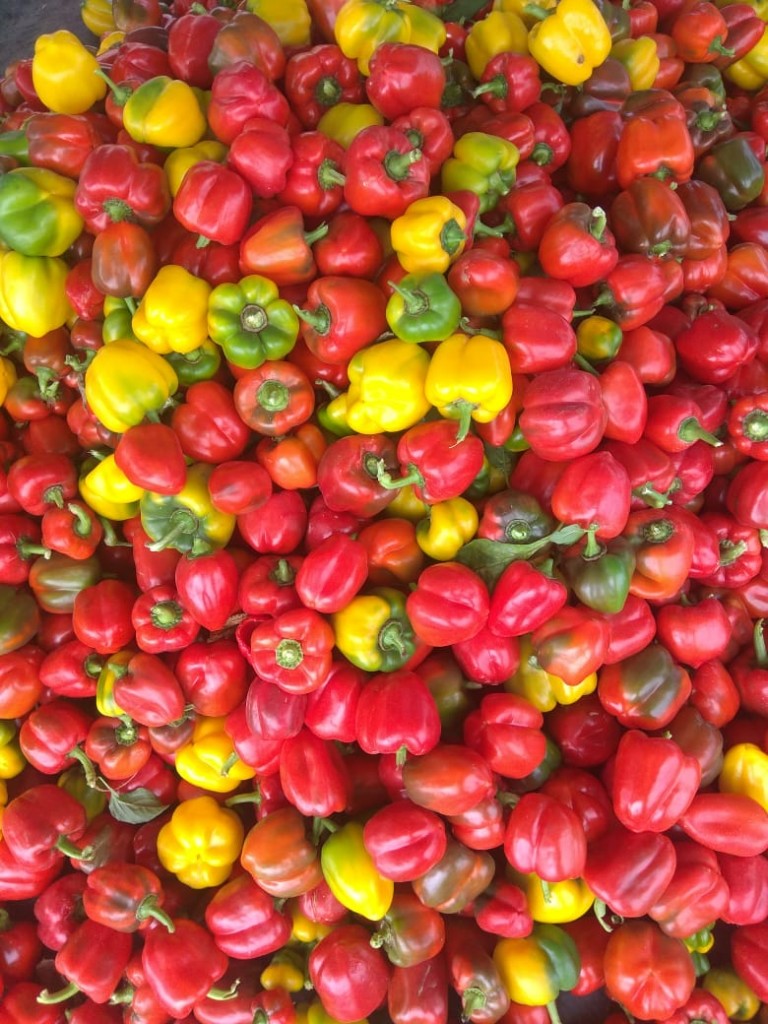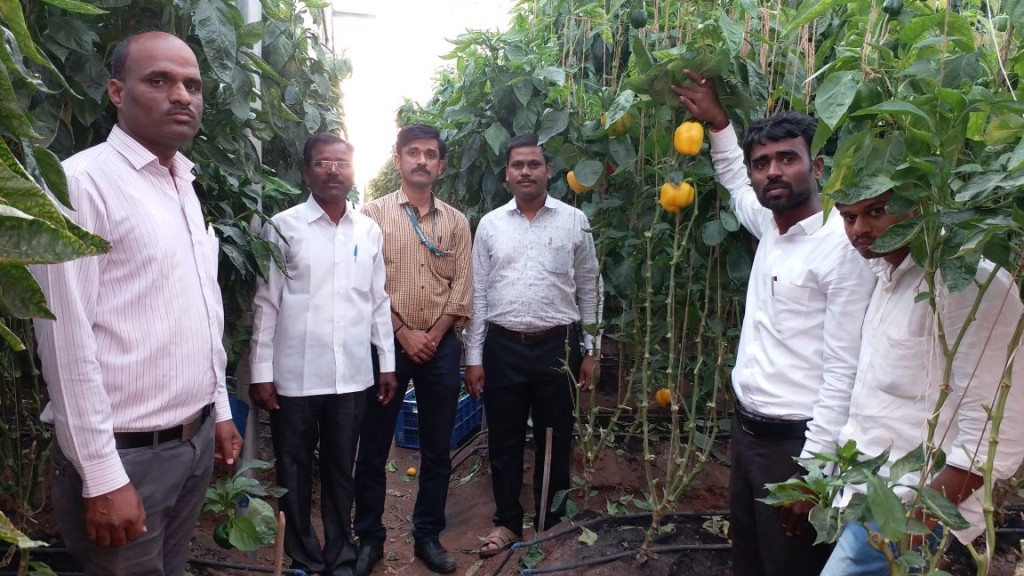Polyhouse farming refers to a controlled and protected method of farming inside a structure, where a variety of flowers and/or vegetables are grown.
The village of Kadbanwadi in Pune’s Indapur taluka is known for two reasons. First, for being an Adarsh Gaon (model village) and second, for the man behind making it drought-proof–Bhajandas Pawar.Once counted among 300 nondescript drought-prone villages in Maharashtra, where even drinking water was a luxury, Kadbanwadi moved on to having 100 farm ponds, three percolation tanks, 27 cement nala bunds, and 110 earthen bunds. All thanks to the continuous efforts of the retired teacher.
It was this love and passion for the betterment of the village, agriculture and the environment that Bhajandas passed down to his son, Vijayrao.
Growing up, Vijayrao studied in the same school where his father taught.But after completing his BSc in Agriculture from the College of Agriculture in Pune in 2010, he decided to enter the Maharashtra Public Service Commission. Agriculture took a backseat, and the young man decided to study for the same at the Mahatma Phule Krishi Vidyapeeth.
Two years had passed, but despite attending rounds of interviews, Vijayrao couldn’t get a job.Disheartened, he returned to his village.He worked at a petrol pump for a while. But realised it was wasting his agricultural degree.
He recalls, “I knew I couldn’t take up traditional farming because it wasn’t financially viable. I had learned about controlled farming, which is also known as polyhouse farming. But despite having a degree in agriculture, I hadn’t practically used the method until then.”At this point in our conversation, he mentions the irony of how the BSc Agriculture course is taught in colleges. “My classmate, who was the topper of the batch, once told me that she had never set her foot or even gotten her hands dirty working in a field. So, it is indeed unfortunate.”
But that did not stop the young man from stepping up for the challenge. “It is only when we use practically all that we have learned in theory, can new-generation farmers become successful,” he says.
And that is exactly what he did.
What is polyhouse farming?
Polyhouse farming refers to a controlled and protected method of farming inside a structure, where a variety of flowers and/or vegetables are grown.The way in which it differs from traditional farming is that crops in an open field cannot withstand adverse weather conditions like heavy rains, scorching heat or extreme cold.
But crops inside a polyhouse grow regardless of the weather conditions, because the atmosphere can be artificially controlled with motorised screens and ventilators to facilitate crop growth. Also, the poly film on the structure doesn’t allow even a drop of rain to enter the structure.While the initial cost of setting up is high, it extends the life cycle of the crop, produces better yield and is water-efficient (since it mostly uses drip irrigation).
From vegetables like cucumbers, tomatoes, strawberries, bottle gourds, cabbages, and capsicums, high-end decorative flowers like chrysanthemums, roses and carnations can also be cultivated in polyhouse.
Vijayrao adds, “I attended a one-week workshop at the Horticulture Training Centre in Pune. After that, I applied for a loan of Rs 30 lakh from the bank under the National Horticulture Mission Scheme. After my loan was approved, I set up a polyhouse in a 1-acre land at Shelgaon.”This was in February 2018.
He spent another ten lakh rupees for the raw material which included soil, drip irrigation, ropes, and other facilities.
His market research had shown that coloured capsicums earned good returns, and so he decided to grow the yellow and red varieties of the exotic vegetable. The first harvest followed in mid-April, where it procured Rs 35-40 per kg.And while the returns didn’t seem too profitable at first, today, he earns Rs 170 per kg for these coloured capsicums.Apart from Pune, he also exports them to Delhi and Mumbai.
In the last ten months, the young farmer has managed to earn Rs 13 lakh!
Also, his impressive work in the polyhouse was inspected by government authorities from the agriculture department, earning him a subsidy of Rs 18 lakh!“Setting up a polyhouse may seem like an expensive investment at the start. But over time, it not only helps you recover your initial investment but also earn good profits,” says Vijayrao.
He continues, “Ideally, once you plant the saplings, they have a life cycle of nearly a year and can bear about 40 tonnes of produce. My polyhouse has yielded 30 tonnes from February to December. I am hoping for ten more tonnes of capsicum till February 2019.”
When asked how he keeps pests at bay, Vijayrao answers, “I maintain a 50-50 ratio between bio-pesticides and chemical ones. Chemical pesticides or fertilisers can damage crops and kill important bacteria that improve the fertility of the soil. But there are several pests and crop diseases that cannot be controlled with organic pesticides alone. So, I maintain a balance.”
To farmers, he says,
“We have seen adverse and uncertain climate conditions ruin acres of crops. In a scenario like this, polyhouse cultivation is not only a safe choice for your crops but also a method that guarantees income. Try to break away from traditional farming and get into the market to understand what the consumer needs. Use your theoretical knowledge practically to grow these crops. And you will only earn profits.”
Vijayrao’s polyhouse attracts a host of farmers from across the district. They come to him to seek guidance and information about replicating the model. And just like his father, the young man readily agrees to help all those who come to him.
If you have questions about polyhouse cultivation, get in touch with him .
Article Credit :- better India
